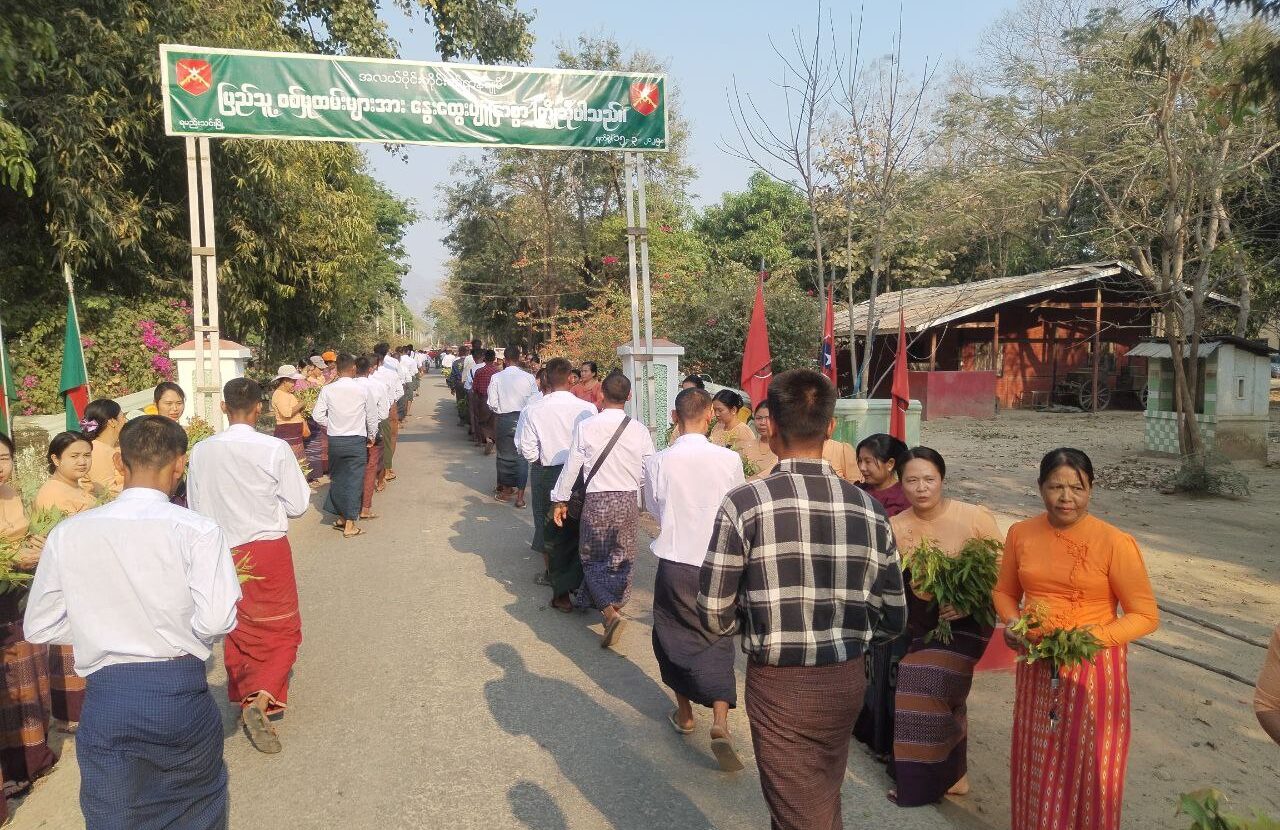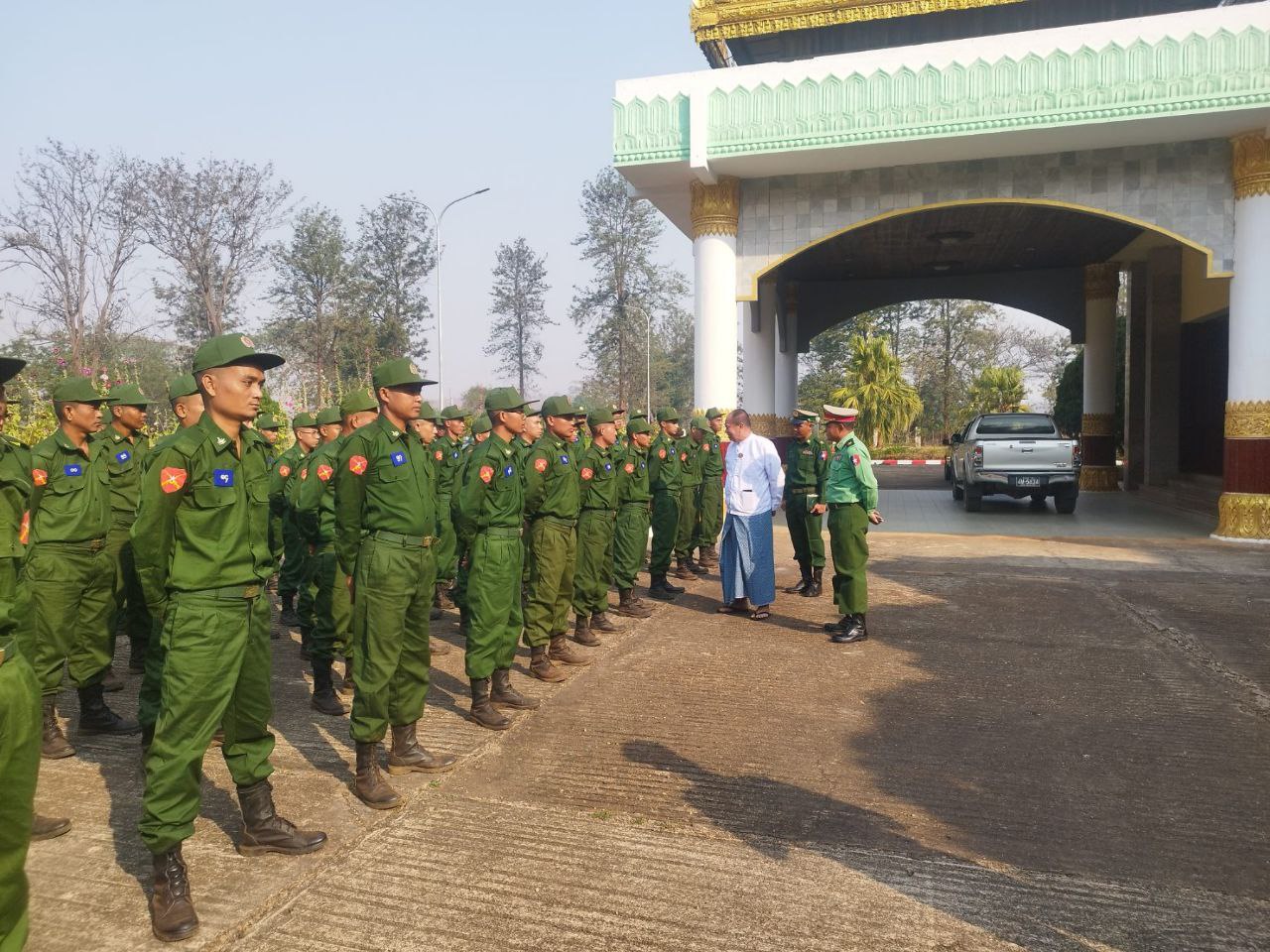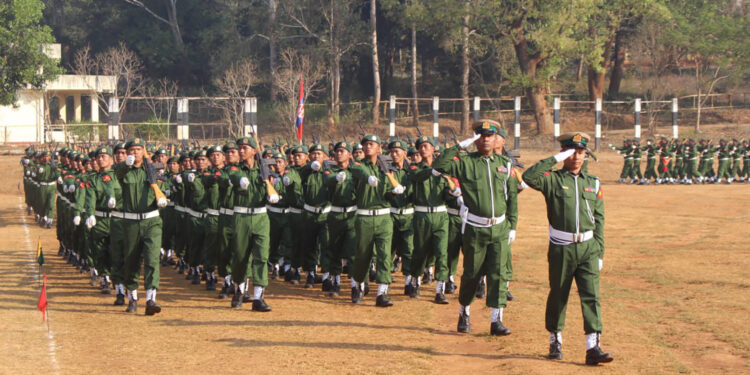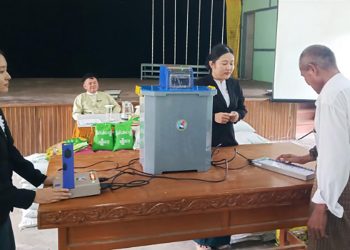Local authorities in Mandalay Region are leaning heavily on parents to send their children into mandatory military service amid reports of parents bribing administrators to exempt them.
The regime maintains a list of eligible individuals aged 18 to 35, using a lottery system to determine who gets conscripted.
Earlier this month, parents in certain Mandalay neighborhoods were forced to sign declarations agreeing to draw lots themselves and voluntarily send their children to administrative offices if selected, and that they are aware that they face penalties under the Conscription Law if they fail to do so.
Other tactics include threats and blackmail.
“Local administrators and armed security personnel came for my son, saying he was on the list,” a mother from Pyigyitagun Township said. “He’d left home a long time ago to avoid conscription. I was summoned to the administration office and asked where he is, and they threatened to imprison me under the Conscription Law if I failed to bring him back.”
Local administrators and community elders have also been told by the regime to ensure conscription quotas are met. They are held responsible for preventing both selected individuals and those listed as eligible from leaving their towns.
“We were told that if our children are not at home, parents or guardians must pledge to ensure their return and readiness for medical tests,” a father from Myitthar Township explained. “If we cannot bring them back, we must find substitutes among our relatives.”
Authorities mutter ominously that they “wish to avoid unnecessary prosecutions,” he added.
Where they can, local administrators are closely monitoring the homes of eligible people, making phone calls, and “advising” families against traveling.

A source close to authorities in Pyigyitagun Township said the threats are a direct response to reports of bribery to evade conscription.
Previously, it was common practice to pay money to hire substitutes, but in response to complaints, township authorities have now discontinued the practice and insist on implementing the lottery results.
Mandalay residents reported that authorities used to collect monthly financial contributions from 20,000 to 50,000 kyats per household as a fee toward supplying conscripts. This money, essentially a bribe to avoid conscription, is no longer being accepted as the regime runs low on fresh recruits.
Lotteries were conducted in Chan Aye Tharzan Township on March 6; Amarapura and Patheingyi on March 9; Pyigyidagun on March 12; and Kyaukse, Myittha, and Wundwin on March 14. In each village or ward, four to 10 people were selected for the next intake scheduled for April.
“In our neighborhood, a family with five sons had already sent two for conscription. When the third son was selected, he fled,” a Pyigyidagun resident said.
Many young men have fled their homes to avoid conscription, particularly after they learned that conscripts from the first to eighth batches were deployed on the frontline.
The Irrawaddy’s efforts to contact authorities for clarification went unanswered.
In some areas, teams of local administrators, soldiers, police, and Pyu Saw Htee militias have taken family members hostage if potential conscripts could not be located. Families are told that their relatives will only be released if the conscripts turn themselves in. In other instances, authorities have threatened to seal off houses if eligible individuals fail to report.

Avoiding mandatory military service is punishable by up to three years in prison and/or a fine.
A Mandalay-based lawyer said: “Since the Conscription Law came into effect, it has disproportionately impacted lower-income families. Many households have been torn apart, with some enduring separations or losing loved ones. A just law must be applied without discrimination, yet this conscription effort—now in its 11th batch—appears to exempt the children of generals and even prominent figures in the arts. This suggests actions that overstep the law.”
Since activating the long-dormant Conscription Law in February last year, the regime has trained 11 batches of conscripts, starting training for the latest intake this week.
Analysts argue that the conscription drive aims to provide “human shields” in ongoing conflicts, where resistance fighters were largely ordinary civilians before the 2021 coup. The regime denies employing aggressive or coercive recruitment tactics.
According to a February report by the Spring Revolution Database (SRD), an organization documenting the junta’s war crimes, a total of 12,655 young men had been forcibly conscripted by the 10th batch.

















